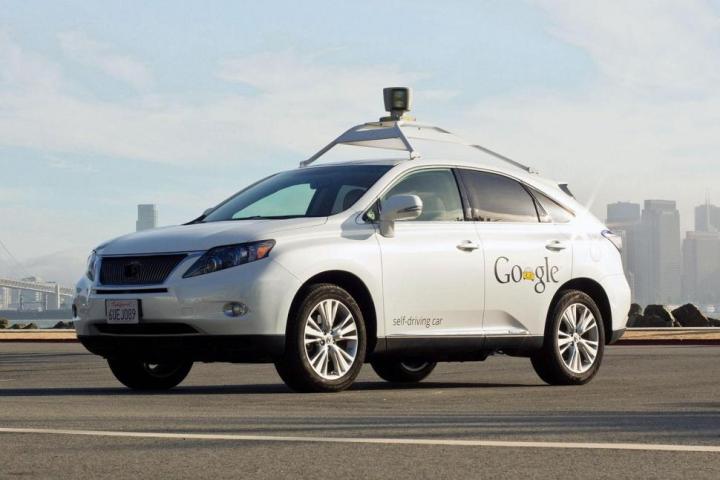
On Tuesday, June 23, a self-driving Lexus RX 400h developed by Google cut off Delphi Automotive’s autonomous Audi Q5 as the German car attempted to change lanes. According to a report by Reuters, the Q5 was forced to abort its lane change, but the cars never made contact.
Like most driverless prototypes, the Q5 was fitted with lasers, radar sensors, cameras, and unique computer software to keep it going down the road safely. It appears that the autonomous tech did its job well, as the director of Delphi’s Silicon Valley lab, John Absmeier, said the car “took appropriate action.” He would probably know better than anyone, as he happened to be a passenger in the Q5 at the time of the event.
While Google declined to comment on the matter, Delphi has released a short statement regarding the close call. “This was an everyday driving scenario that both cars handled as they should have,” a spokesperson told Fusion. Currently, Delphi Automotive has two self-driving prototypes roaming the roads of the Golden State, while Google has 23.
Earlier this month, Google made a bold statement claiming its self-driving cars were safer than human-driven ones. After logging a combined 1.8 million miles of autonomous driving, the multinational tech giant said that only 12 accidents had occurred, none of which were the fault of the vehicles themselves. According to Google, the array of computers and sensors onboard its driverless cars allows them to anticipate and react to emergency situations much more quickly than a human brain can.
Editors' Recommendations
- Volkswagen is launching its own self-driving car testing program in the U.S.
- How a big blue van from 1986 paved the way for self-driving cars
- Tesla pulls latest Full Self-Driving beta less than a day after release
- Watch San Franciscans take a ride in Waymo’s self-driving car
- Tesla issues stark warning to drivers using its Full Self-Driving mode


